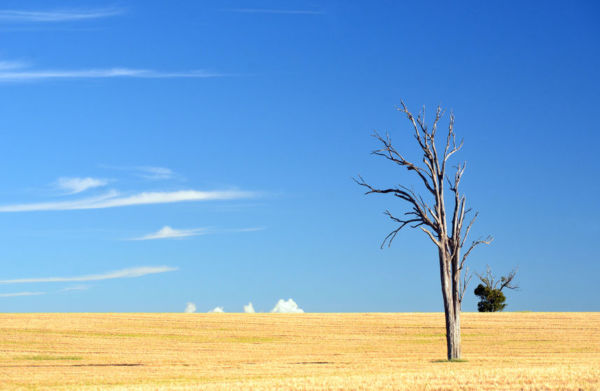‘We’re not water poor, we’re vision poor’: Michael McLaren continues push for drought future fund

The NSW Government has unveiled an emergency drought relief package.
An extra $500 million will be available for embattled farmers grappling with what Premier Gladys Berejiklian has called an “unforgivably dry” set of circumstances. Faltering crops, crippling water shortages and a receding supply of fodder to preserve livestock have become the daily struggles of life in the bush.
Some have even been forced to shoot their cattle, as animals succumb to starvation.
But under the new package, a drought transport subsidy scheme may bring some respite. The subsidies will cover up to 50 percent of the freight expense involved in fodder, water and livestock transportation. They will be backdated to the start of the year, bringing state government’s total drought expenditure to more than $1 billion.
Deputy Premier John Barilaro says this should ease some of the burden.
“What we’re seeing is a multitude of different costs being removed from running a farm,” says Barilaro.
“We’re switching off a lot of the costs associated with it.”
But Michael McLaren is calling for more.
He thinks the sovereign wealth fund created by NSW Treasury in this year’s budget would be better spent as a drought future fund for the state. This could be put towards the capital needed to build drought-proofing infrastructure and water harvesting measures.
“Why not make the sovereign wealth fund and its initial $3 billion cash injection, into a permanent drought future fund?” asks Michael.
“That way there is a pot of money that is invested in the stock market. You grow it every year with interest, the state can add to it with lumps of cash if surpluses come in and when drought strikes, you just release the money without government having to look into their budgets.”
“It comes back to what I was saying about vision. We can’t do much about the rain. But what we can do is certainly inject an element of vision into our leadership.”
“We’re not water poor, we’re vision poor.”
Click PLAY below for Michael’s full interview with John Barilaro:















